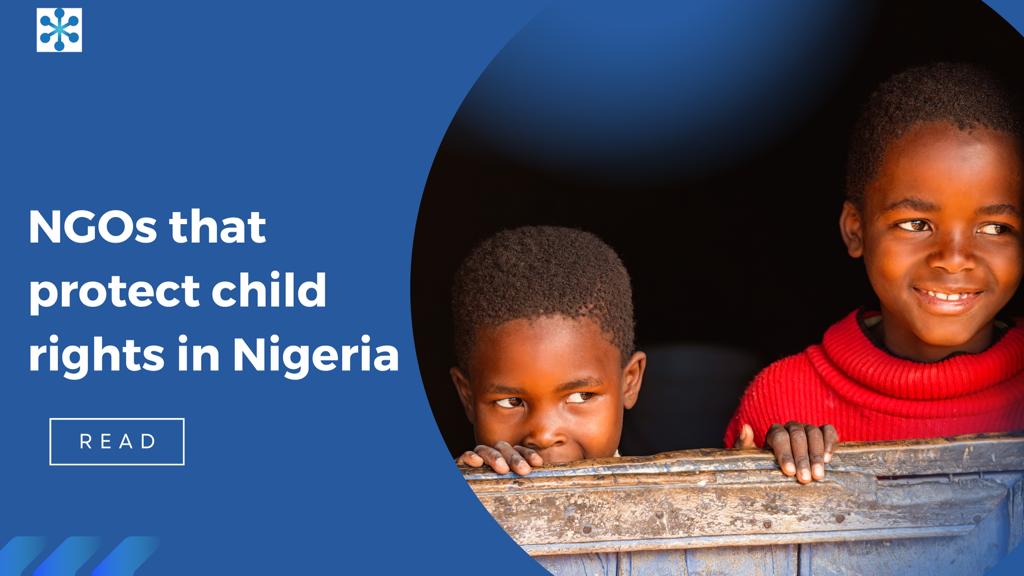|
A child can be defined as a young individual below the legal majority – 18 yearsChildren represent the most vulnerable parts of any human society. While they represent the most vulnerable parts , they also represent the future of any society. Every living adult today was first a child who in some way relied on their community to protect and provide for them. Of the 206,139,589 people who represent the population of Nigeria, 110,797,959.5 are estimated to be children. This represents 53.3% of the entire population. It is however worrisome that despite their large contribution to the nation's population, a significant portion of markers that indicate the state of well-being of the average Nigerian child have fallen short. Let us examine a few belowAs of 2022, UNESCO had estimated that of the ten million out of about twenty million children between the ages of 5 and 16 were out of school.According to UNICEF, an estimated two million children in Nigeria suffer from severe acute malnutrition (SAM), but only two out of every 10 children affected is currently reached with treatment. This has led to 32% of children under the age of 5 experiencing stunted growth.
Nigeria also has the highest number of child brides in Africa with 23 million girls and women married as children. In a bid to improve the realities for disadvantaged Nigerian Children, a few organisations have stepped up and are leading the charge in giving every Nigeria child a fair chance at a future. The organisations are highlighted below. 1. Coalition of Civil Society to End Child Marriage in Nigeria: The Coalition of Civil Society to End Child Marriage in Nigeria was established in December 2015 when an NGO, Girls Not Brides, carried out initial research projects and began to mobilise civil society organisations working to end child marriage. The coalition is currently formed of 32 members from across the six geo-political zones, 17 of which are actively engaged in the Technical Working Group to End Child Marriage in Nigeria which is chaired by the Federal Ministry of Women Affairs. The steering committee composed of eight member organisations is led by two co-chairs, with ActionAid International Nigeria holding the secretariat. 2. CS-SUNN: The Civil Society Scaling-Up Nutrition in Nigeria (CS-SUNN) is a non-governmental, non-profit making alliance, made up of organizations with a shared vision to transform Nigeria into a country where every citizen has food and is nutrition secured. We pursue this lofty goal by engaging government and non-state actors to raise awareness, sustain commitment and actions to effectively tackle under-nutrition in Nigeria. The alliance was birthed in November, 2013 at Ilorin, Kwara State, Nigeria and formally inaugurated on the 7th of August, 2014. 3. Save the Children ( Nigerian Chapter): Save the Children has been working in Nigeria since 2001 to ensure all children survive, learn and are protected. They work towards protecting children from all forms violence , especially girls, orphans and internally displaced children. Their programmes work from the community to the national levels to ensure children’s rights are protected. 4. The Destiny Trust: The Destiny Trust is an organisation focused on the wellbeing, education and empowerment of homeless children and other classes of young people in disadvantaged circumstances. They are committed to giving at-risk children a new start, nurturing them and holding their hands into the future through integrated initiatives which focus mainly on using education to create tangible empowerment and lifting them from extreme poverty and conditions that hold them back. 5. Dream Catchers Academy: The Dream Catchers Academy – an academy that provides free dance, drama and music classes for underprivileged children. The academy also provides shelter and all the basic necessities of life to the students who can’t afford these. The academy uses innovative education to impact the lives of young kids and has catered to over 500 kids in Ebute Metta Slum and in Ikorodu. Aside from catering to underprivileged kids, they also provide accommodation, clothing and general welfare. They hold an annual summer program which offers free summer coaching to children in Ebute-Metta Slums and empowers them with back to school materials at the end of the summer program It is important that as a society, we collectively try to protect the children around us and make our world a place where they can thrive. The Nigerian NGO community is grateful to all the organisations that work to create a better world for our children. Sources: UNICEF UNICEF Save the Children CS-SUNN The Destiny Trust Dream Catchers Academy
0 Comments
Leave a Reply. |
